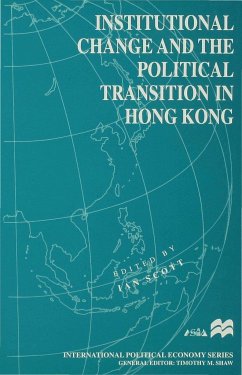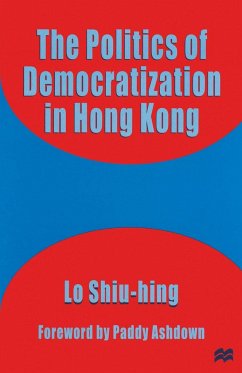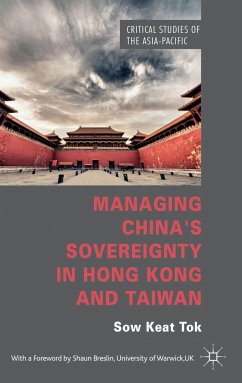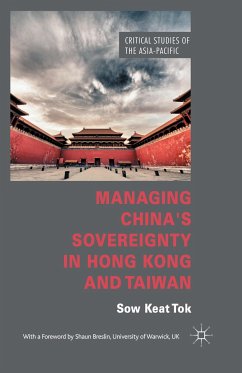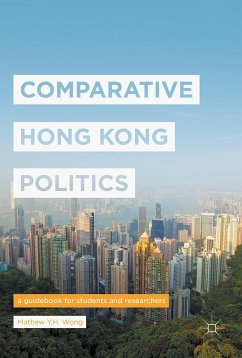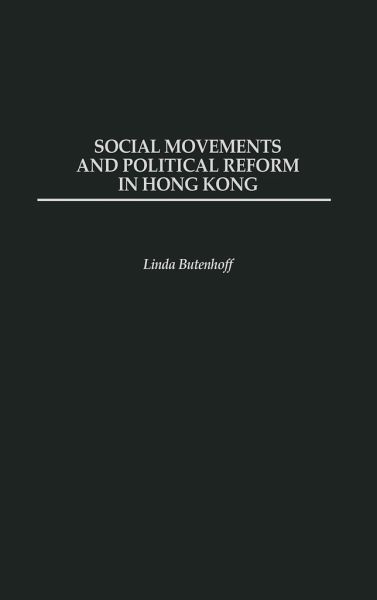
Social Movements and Political Reform in Hong Kong
Versandkostenfrei!
Versandfertig in 1-2 Wochen
87,99 €
inkl. MwSt.

PAYBACK Punkte
44 °P sammeln!
Hong Kong society is often regarded as politically apathetic. Yet throughout its history, Hong Kong experienced periodic waves of social movement activity. In part, the perception of an apathetic populace stems from the colonial government's laissez-faire policies, the society's concentration on economic development, the maintenance of traditional Chinese culture, and a consensus that Hong Kong would revert to Chinese sovereignty. Since Hong Kong was a colony, instead of evolving into a democratic government, Great Britain instituted a system of elite consultation and absorption of the masses'...
Hong Kong society is often regarded as politically apathetic. Yet throughout its history, Hong Kong experienced periodic waves of social movement activity. In part, the perception of an apathetic populace stems from the colonial government's laissez-faire policies, the society's concentration on economic development, the maintenance of traditional Chinese culture, and a consensus that Hong Kong would revert to Chinese sovereignty. Since Hong Kong was a colony, instead of evolving into a democratic government, Great Britain instituted a system of elite consultation and absorption of the masses' political problems through indirect participation. Butenhoff addresses the question of why social movements emerged and how they influenced the process of political reform. Her study presents and analyzes the activities of social movements so that a clearer picture of civil society and political change from below emerges. Butenhoff integrates the literature on Hong Kong, civil society, and social movements into an integrated approach to analyze social movement influence in Hong Kong politics. Her three case studies: the independent labor movement, the nontraditional Christian movement, and the democracy movement are analyzed using a social movement framework. She evaluates the forces that drive and sustain social movements and argues that while the Chinese and British governments debated the fate of democratic Hong Kong, the Hong Kong people have been overlooked throughout the process. And, as a result, Hong Kong social movements play an essential role in raising the awareness of the people and bringing to light the voices from below.






